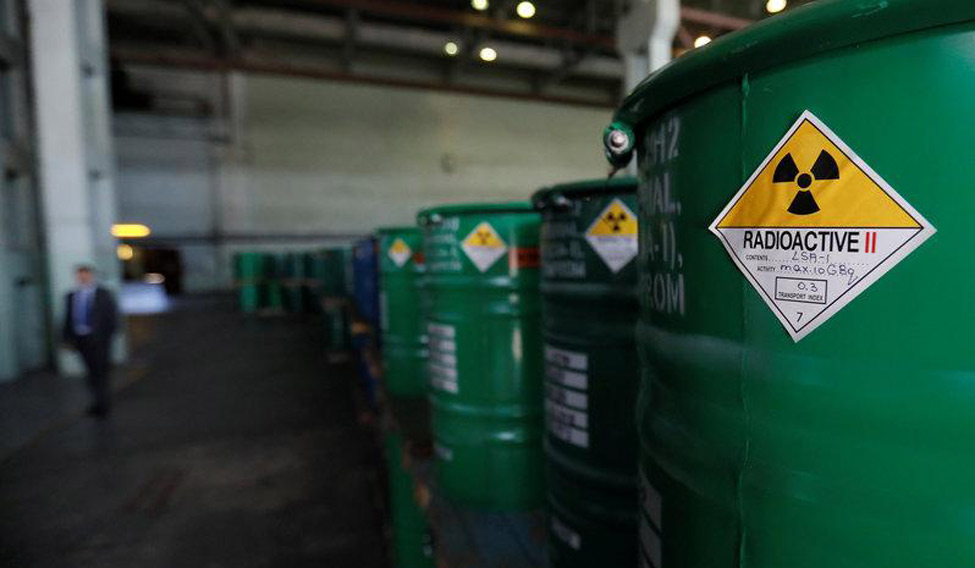India is engaging with various countries, including Uzbekistan, to procure nuclear fuel as part of its plan to create a strategic uranium reserve to ensure long-term security.
The plan is to have a stockpile of nuclear fuel for its strategic uranium reserve that can sustain the country's reactors for the next five years so that they do not stop functioning because of the lack of uranium.
In the past, the Indian power reactors were under-performing due to shortage of uranium, owing to the sanctions imposed by the West post 1974 Pokhran nuclear tests.
Talks are currently being held with Uzbekistan, a senior government official said, and a delegation from the Central Asian country had visited India last month to discuss the issue in detail.
The delegation came just two months after Prime Minister Narendra Modi held bilateral talks with Uzbek president Shavkat Mirziyoyev on the sidelines of the Shanghai Cooperation Organisation Summit in Astana in June this year, said a senior ministry of external affairs official, on condition of anonymity.
"We have been looking to import uranium from Uzbekistan in the past. Back then, they had refused to transport uranium to an Indian port. But now they have agreed to do so and negotiations are on," said a senior government official requesting anonymity.
According to the World Nuclear Association, an international organisation that represents the global nuclear industry, the landlocked Central Asian country is the seventh largest exporter of uranium in the world.
Attempts are also being made to procure uranium from Australia. A nuclear cooperation pact between the two nations was signed in 2014 and came into force in 2015.
Uranium mining in Australia is mostly done by private players.
However, a senior government official pointed out that Australian uranium is "impure" in nature.
"We have got nearly a kilogramme of uranium from Australia. This is being tested by the Nuclear Fuel Complex, Hyderabad to determine the price of the uranium. We are hopeful that the uranium import starts by next year," the official added.
India's concerns to have a stockpile of nuclear fuel emanate from the time when its atomic reactors functioned below its capacity level due to the shortage of uranium.
The US and other nations had imposed sanctions on India following the Pokhran nuclear tests in 1974.
Post Indo-US nuclear cooperation agreement, New Delhi's quest to have an uranium reserve got traction as importing fuel became much easier.
Apart from domestic production, India currently imports uranium from Kazakhstan and Canada. This is primarily used to fuel its indigenously built Pressurised Heavy Water Reactors.
It procures enriched uranium from Russia for its two Boiling Water Reactors at Tarapur in Maharashtra. As part of its contract, Russia also supplies uranium to fuel the two reactors at Kudankulam in Tamil Nadu.
Apart from it, it has agreements in place to import uranium from Namibia and Mongolia.
The government recently approved 10 Pressurised Heavy Water Reactors with a capacity to generate 7,000 MW. Work on four reactors with a capacity of 1,000 MW each is in progress, apart from seven domestic reactors.
"We will now have 21 reactors under construction and 22 reactors in operation. This will increase the capacity to over 22,000 MWe by the end of next decade. We shall continue to add more capacity in future," Sekhar Basu, Department of Atomic Energy (DAE) secretary and chairman of the Atomic Energy said at the International Atomic Energy Agency (IAEA) general conference at Vienna last week.
The IAEA is a global nuclear watchdog, with its headquarters in Vienna.





